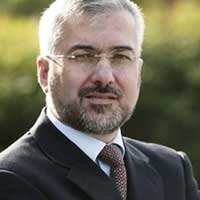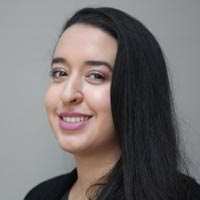
A conversation with Jihad Fakhreddine
Gallup's Regional Director for the World Poll in MENA

and Iman Berrached
Gallup's Research Program Manager for MENA
What do you see as the No. 1 problem facing women in your region?
Fakhreddine: The prospect of unemployment. Having a university education does very little to improve their prospects of getting a job. Universities may be full in many Arab countries, with even larger female populations than male. But for many women, as is the case for their male counterparts, a university degree is increasingly becoming a passport to nowhere. Many expect the government to provide jobs, but that sector is already saturated. Political instability in a number of Arab countries is blocking economic prospects.
Less-educated Arab women are also in a precarious state. The agricultural sector is quickly losing its share of the national GDP -- and, adding insult to a persistent economic injury, the manufacturing sector's GDP share is also shrinking.
Berrached: I would say for Gulf countries, it is women's labor force participation. By that, I don't just mean participation by showing up or giving women jobs, but actually engaging women in the workforce and having their voices and ideas valued and heard. And across the whole region, gender-based violence.
What do Gallup's World Poll data say about this? Are things getting better or worse?
Fakhreddine: Our World Poll data show that the percentage of women across the region who are out of the workforce is in the low 70s. This is down from the upper 70s a decade ago, but it is still very high. The unemployment picture doesn't look much better. About 30% of women in the workforce are unemployed -- double the unemployment percentage for men.
Berrached: Worldwide, women feel less safe walking alone at night where they live than men do, and the MENA region is no exception. However, while there's still a pretty large gender gap on this question between men and women, it looks like things may slowly be improving.
Is the situation for women getting better or worse in some countries than others? What are governments or the private sector doing?
Fakhreddine: The issue is that what ought to be driving economies is the private sector, not the states. In many Arab countries, nongovernmental organizations (NGOs) are growing in number and type of activity. But, at the same time, there is growing suspicion about their aims.
Berrached: It's better for some countries, and worse for others. Safety is a big concern for women in Egypt, for example. Recently, a Thomson Reuters Foundation survey ranked Cairo as the most dangerous megacity for women, with its high rates of harassment and lack of opportunities. However, just a few weeks ago, an Egyptian man was sentenced to three years in prison in the first sexual harassment case ever taken to court in the country. The ruling could set a new precedent.
That situation is different from the one in Tunisia, which recently passed a number of laws related to female empowerment and equality. Some of the new legislation makes it a crime for men to verbally abuse or harass women, and it strengthens the punishment for abusers, including family members.
Saudi Arabia has made some great strides too, recently allowing women the right to drive and to attend sporting events and concerts.
If you could pick one problem to solve for women in your region, what would it be?
Fakhreddine: I am not sure we can work to solve it, but the problem I would address is the quality of education and its relevance to their future.
Berrached: For me, it's gender-based violence.
What additional questions do you wish we asked women, but haven't yet?
Fakhreddine: On the spur of the moment, I would want to ask two qualitative questions: What is the first thing you think about your life when you wake up in the morning? What do you think about when you go to bed?
Berrached: Questions about violence or fear -- but asking about these types of things can be very risky and tricky. I would also like to ask what they dreamed of becoming when they grew up.
Find out more about Gallup's World Poll and its research in the Middle East and North Africa.




